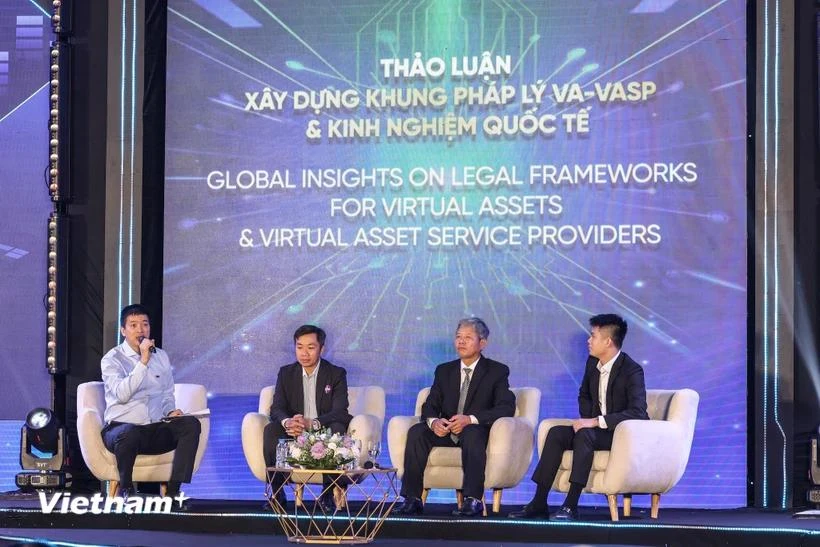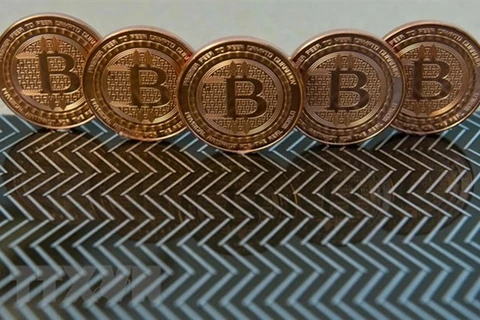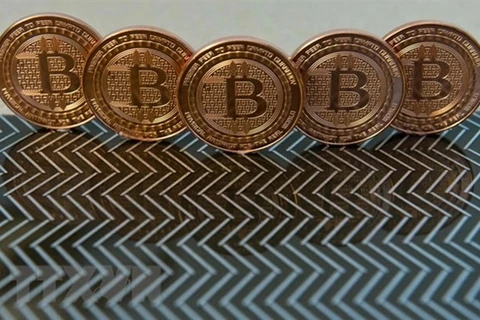
Hanoi (VNA) – The Vietnam Blockchain Association hosted a seminar in Hanoi on April 24 to collect opinions for the building of a legal framework for virtual assets (VA) and virtual asset service providers (VASP).
The seminar, themed “Global insights on legal frameworks for virtual assets and virtual asset service providers”, was organised as part of the annual forum “Blockchain & AI: The Next Revolution”.
Up to 18 documents relating to VA-VASP issued in Vietnam
Virtual assets (VA) and virtual asset service providers (VASP) are two terms defined in recommendations made by the Financial Action Task Force (FATF) on combating money laundering and the financing of terrorism and proliferation (AML/CFT/CBF).
According to a survey conducted in 60 countries on global anti-money laundering (AML) and counter-terrorist financing (CFT) standards, consumer protection and VASP standards by the Atlantic Council, by December 2023, 32 out of 60 countries had official legalised encrypted assets. A total of 10 nations in the Group of 20 (G20) which account for 50% of the global gross domestic product (GDP) have officially issued management regulations on virtual assets and virtual asset service providers.
In the US – the world’s largest economy – the legal frameworks on the management of VA-VASP were already issued in all the above-said standards. In China, encrypted assets are prohibited comprehensively but are an economy closely related to Hong Kong. This is the leading region with a complete legal framework and policies to closely monitor VA-VASP with priority given to protecting consumers. In addition, China has a Blockchain-based Service Network (BSN) with an ambition plan to compete globally with publicised blockchains.
In Vietnam, as many as 18 relevant documents relating to VA-VASP have been issued so far. The Prime Minister’s Decision No. 194/QD-TTg dated February 23, 2024, focuses on the promulgation of a national action plan on the Government's commitment to prevent money laundering, terrorist financing, and the proliferation of weapons of mass destruction.
The goal is to realise the National Action Plan to implement the Vietnamese Government's commitment with the Financial Action Task Force (FATF). They will help to soon remove the country from the Increased Monitoring List (Grey List) on the basis of ensuring to the maximum national interests.
The plan sets out 17 specific actions to implement the commitment, including demonstrating that competent authorities have improved understanding of money laundering/terrorist financing risks. It also means they are taking actions to mitigate these risks through the implementation of related strategies and policies; and proving effective cooperation, coordination and communication between relevant agencies.
Attention will be paid to strengthening formal cooperation (multilateral cooperation in extradition and legal assistance) and informal cooperation (of law enforcement agencies and Financial Intelligence Units) with foreign partners. They do this by providing constructive information and proactively seeking cooperation regarding criminals and their assets. They also ensure competent authorities, including central agencies, are provided with appropriate resources to carry out international cooperation.
Law enforcement and prosecution agencies will prioritise parallel financial investigations and demonstrate a significant increase in the number of money laundering investigations and prosecutions, consistent with Vietnam's money laundering risk profile.
Unavoidable trend in the future
At the annual forum on Blockchain and AI held by the Vietnam Blockchain Association in Hanoi on April 24, experts held that some 20% of the Vietnamese population own crypto assets which are developed by blockchain technology. Without strict management and failure to comply with global taxing principles, VA transactions will pose great challenges for the country in the coming time.
As of the end of December 2023, 32 countries regulated crypto assets in their jurisdictions, including 10 nations of the Group of 20 officially issuing regulations on VA and VASP. The Alantic Council’s surveys on anti-money laundering and combating the financing of terrorism (AML/CFT) and protection of users and the VASPs were also revealed.

Standing Vice Chairman of the Vietnam Blockchain Association Phan Duc Trung said 18 related documents have been issued in Vietnam so far. The notable one being the national action plan to carry out the Government’s commitment to prevent digital financial violations and lift Vietnam out of the Financial Action Tasks Force’s list of Jurisdictions under Increased Monitoring (grey list).
He said the plan focused on the AML/CFT and VASP standard but neglected taxation of VA and protection of users. Therefore, a complete legal framework has not yet been shaped up.
The association hoped to collect opinions from the community and enterprises as well as have dialogue with state management agencies to develop a complete framework before May 2025.
At the event, the association announced the second Switch Up Accelerator, helping startups to call for funds, and highlighted an overview of the blockchain industry in Vietnam and the globe.
On this occasion, the Academy of Blockchain and AI Innovation was debuted, aiming to provide blockchain and AI training strategies for 1 million people by 2030, including 100,000 students in 30 universities across the nation./.






















